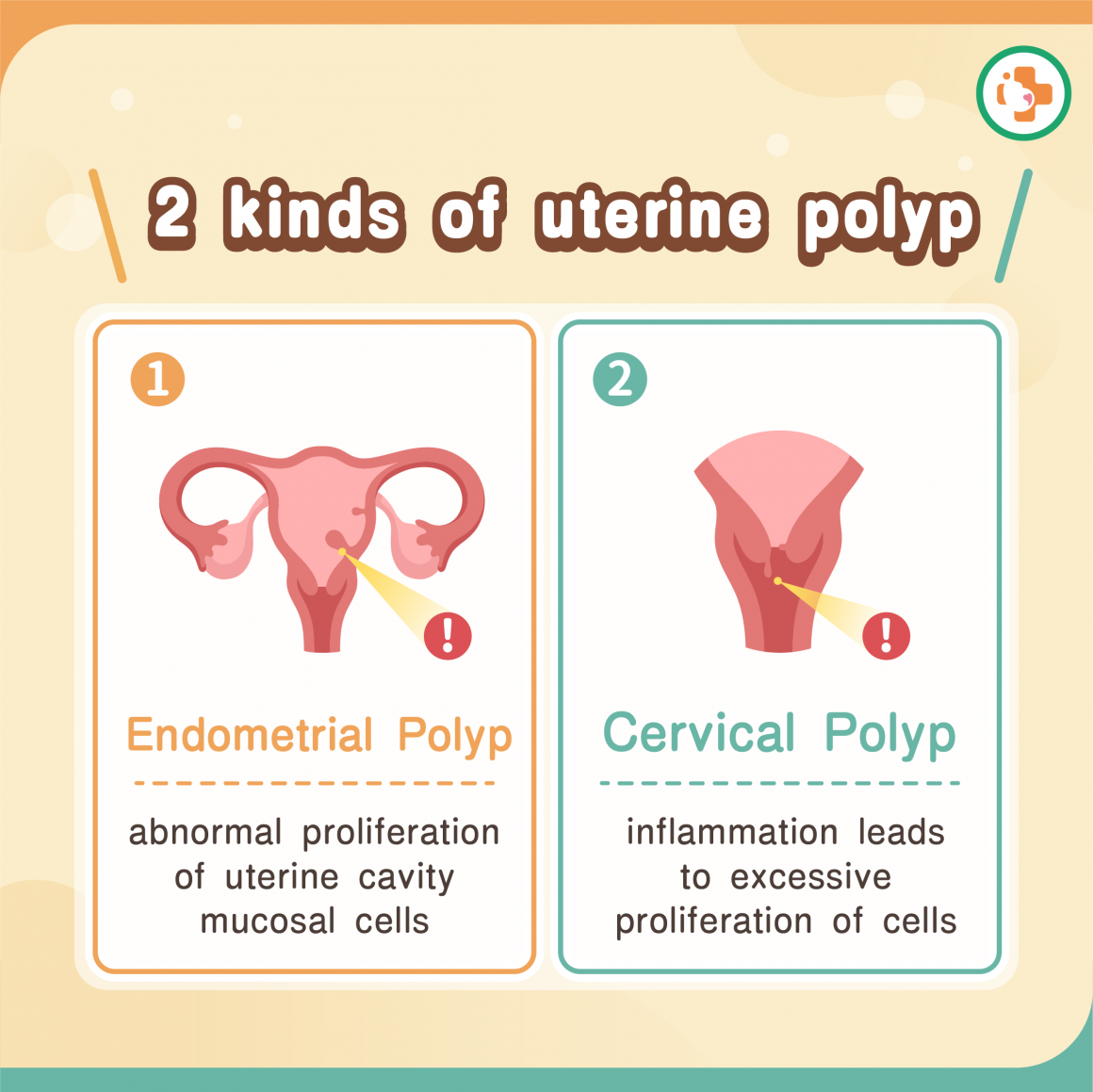Knowledge Sharing
2022.09.14
Endometrial Polyps: Polyp Removal and Get Pregnant with Polyps
Many people want to have children but are hampered by uterine polyps. Individuals are frequently unaware of their asymptomatic nature until they experience prolonged infertility or recurrent miscarriages. The underlying issues are only discovered through uterine hysteroscopy. Numerous cases show that uterine polyps have an undeniable impact on pregnancy rates.
What exactly causes polyps to cause infertility? How should they be identified and treated? This article will provide a thorough explanation.
The following outlines the differences between the two types of polyps:

According to Dr. Chung-I Chen, polyps are found in less than 10% of women of reproductive age, but as high as 20% of infertile women. Polyps larger than 1.5 centimeters or multiple polyps can affect pregnancy. This is mainly due to the uneven surface of the uterine lining, which hinders embryo implantation. Women who are planning a pregnancy and have polyps are strongly advised to have them removed.
Common methods for checking for uterine polyps include:
'Within the following month or so, the endometrium will regenerate, producing growth factors that promote fertility and thus increasing the chances of conception.' said Dr. Chung-I Chen. He also stated that surgery can cause endometrial injury, and that those considering IVF should avoid implanting during the same month as surgery.
Common methods for uterine polyp surgery:
Following polyp removal, it is recommended to undergo a pathological examination to check for malignancy in the polyps.
What exactly causes polyps to cause infertility? How should they be identified and treated? This article will provide a thorough explanation.
About Uterine Poly
The two types of uterine polyps and why do they cause infertility?
Polyps in the uterus are classified based on where they grow. They are sometimes associated with symptoms such as polycystic ovary syndrome, chronic endometritis, or uterine fibroids. Pathological diagnosis via tissue sectioning is required to confirm the presence of polyps and determine whether they are benign or malignant (the likelihood of malignancy is less than 1% regardless of tumor size).The following outlines the differences between the two types of polyps:
Endometrial Polyp
Endometrial polyps develop within the uterine cavity and are distinguished by abnormal uterine cavity mucosal cell proliferation. The exact cause is unknown, but it predominantly affects women aged 30 to 60. Polyps are more common in women who have polycystic ovarian syndrome and endometritis. Furthermore, patients who have previously had uterine endometrial polyps frequently have recurrences even after treatment.Cervical Polyp
Cervical Polyps grow on the cervix due to inflammation leading to excessive cell proliferation. They protrude from the cervical opening and are frequently multiple rather than solitary. Their size is typically less than one centimeter, and they can be treated surgically.
According to Dr. Chung-I Chen, polyps are found in less than 10% of women of reproductive age, but as high as 20% of infertile women. Polyps larger than 1.5 centimeters or multiple polyps can affect pregnancy. This is mainly due to the uneven surface of the uterine lining, which hinders embryo implantation. Women who are planning a pregnancy and have polyps are strongly advised to have them removed.
How to Check for Uterine Polyps?
Polyps in the uterus frequently cause no symptoms. While some patients may experience heavy menstrual bleeding, infertility, prolonged menstruation, and other conditions, the majority of cases are discovered through examinations.Common methods for checking for uterine polyps include:
- Ultrasound Examination: A preliminary ultrasound examination of the uterine cavity to identify any abnormalities. If foreign objects are found within the cavity, additional testing is required.
- Hysteroscopy: A thin tube is inserted into the uterus, and the uterine cavity is expanded with a liquid at 37°C for inspection.
Is it possible to conceive naturally after uterine polyps have been removed?
A study of 2,500 infertility patients revealed that after surgical removal of polyps increases the likelihood of natural pregnancy by 60% within six months.'Within the following month or so, the endometrium will regenerate, producing growth factors that promote fertility and thus increasing the chances of conception.' said Dr. Chung-I Chen. He also stated that surgery can cause endometrial injury, and that those considering IVF should avoid implanting during the same month as surgery.
Common methods for uterine polyp surgery:
- Electrocautery: Traditional polyp removal often involves electrocautery. This procedure heavily relies on the clinical experience of the physician. Excessive removal during surgery may potentially harm the uterine lining.
- TruClear™ hysteroscopic (Cold Knife): TruClear™ removes uterine polyps safely and precisely without damaging the uterine lining.
Following polyp removal, it is recommended to undergo a pathological examination to check for malignancy in the polyps.




